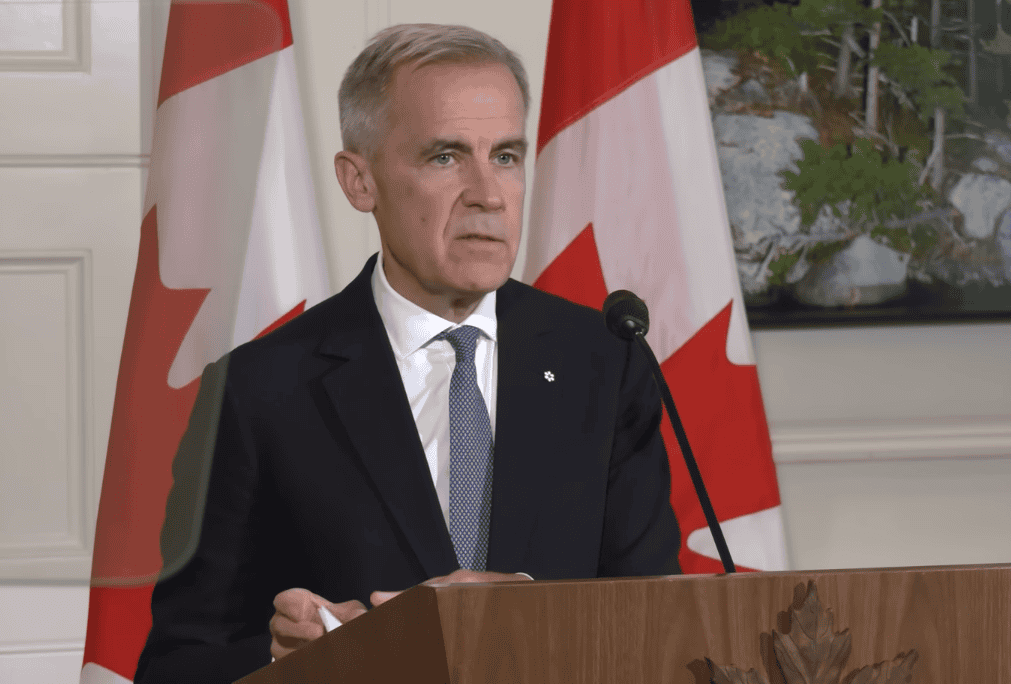Carney’s finance minister has been promising to deliver “generational investments” in this budget — but at the same time, Carney has warned that his plan to transform the economy will involve “sacrifices.” These investments and sacrifices are distributed according to a peculiar logic.
For example: Carney has been publicly wringing his hands over the $10 million he claims Canada Post “loses” every day. In their analysis of that framing,The Breach pointed out that this number (an unusually high estimate) is tiny compared to the $169 million the military spends daily. That hasn’t stopped Carney from slashing the postal service’s activities, all while promising an extra $9.3 billion to the country’s armed forces by March.



Why don’t we arm the postal workers so they count towards our NATO GDP commitments and we get additional rural sovereignty patrols. A little extra training and a small bump in pay and voila!
Not sure how serious you are…
But actually, yes, just not how you have described it.
A significant amount of what a military does is simply logistics. Basically what Canada Post is, is a logistics machine.
The military is important to have. Envisioning a synergy between the military apparatus and providing civil services is something we should seriously be considering. The military should be topping up pilot flight hours with medical helicopter transport. The military should be augmenting resource delivery to remote communities. The military should be involved in postal logistics.
Oh god no. I am full of shit for a joke. The military has a critical function to fulfil and they definitely don’t need a side hustle.
We also don’t need to amp up what going postal means.
The military does have a critical function to fulfill, no doubt.
That being said, I’ve personally lived this. Many years ago, I worked with a military contractor. We periodically needed to service equipment in very remote areas. Depending on the conditions we could either get there on our own steam, or depending on the equipment, hire civilian helicopters to get us there.
BUT, from time to time, our goals and military helicopter training goals would align. We and our equipment would stand in for whatever people and equipment the scenario was. In those cases, we’d hitch a ride. It was an absolute win-win.
Don’t get me wrong, I’m not talking suggesting having postal workers going door to door strapped with a C7. And I recognize that it could slippery-slope where training objectives are compromised for business objectives.
BUT, there are real cases where collaboration could exist within the public sector. Search and rescue and medical transport are really low hanging fruit. The postal system has opportunities too, I’m sure of it.
I can see the appeal, but in my mind, it’s a bad idea. These opportunities of civilian services benefitting from military training for example just take away from the required investments in civilian infrastructure that turn into gaping holes when the military is called to action.
All good, we can agree to disagree. I think your objections are reasonable, but I don’t think they’re unmanageable. I think the line between military and civilian is A line to subdivide things, but I think public vs private is a better one. As well, expanded military spending to hit Trumps new unilateral benchmarks (which is happening) doesn’t necessarily demand a larger instantaiously deployable force. Resources could be earmarked to not leave massive gaps in other civil services. If it has to happen, still fine, dovetailing military out of those roles and backfilling with civilians (even transitioning through reserves) has a shorter turnaround time and more manageable than finding and training more recruits or god forbid a draft.
Anyhow, again, fine to agree to disagree. I hear your stated objections and agree they’re valid… I think where we disagree is on if they’re insurmountable or not.
Not even insurmountable. Just optimal.